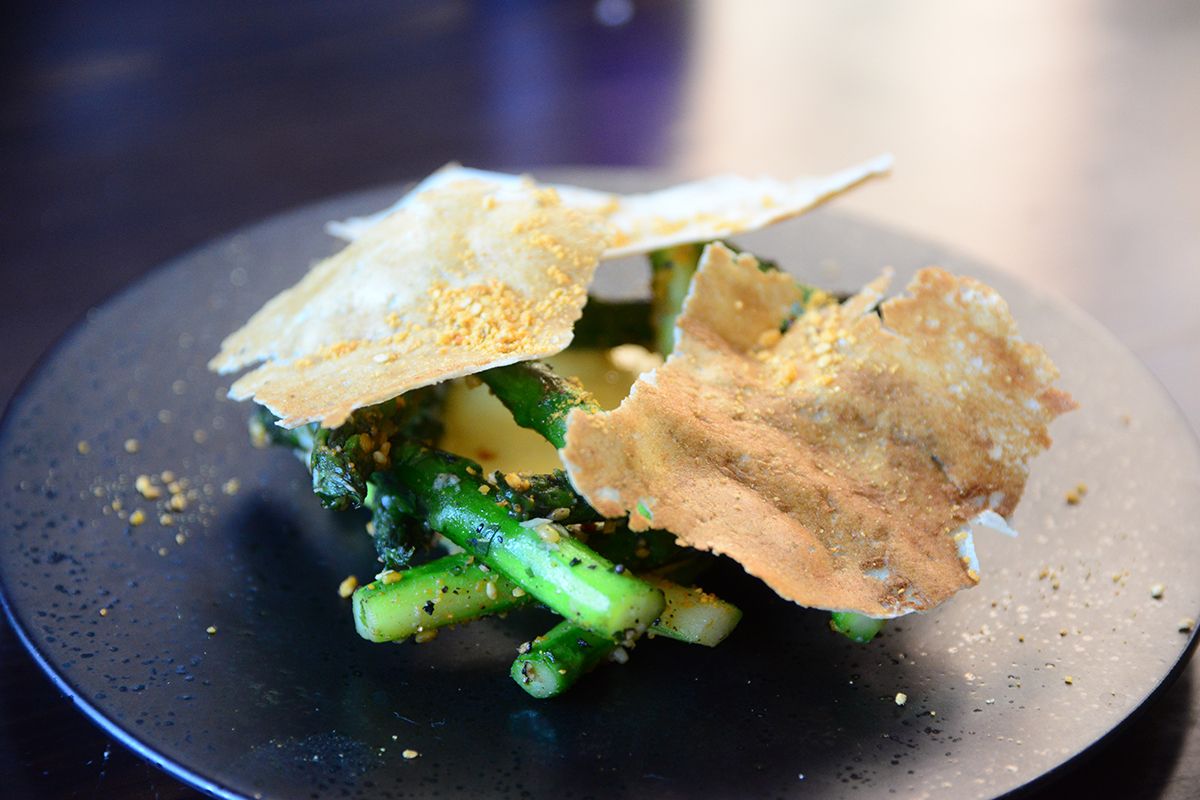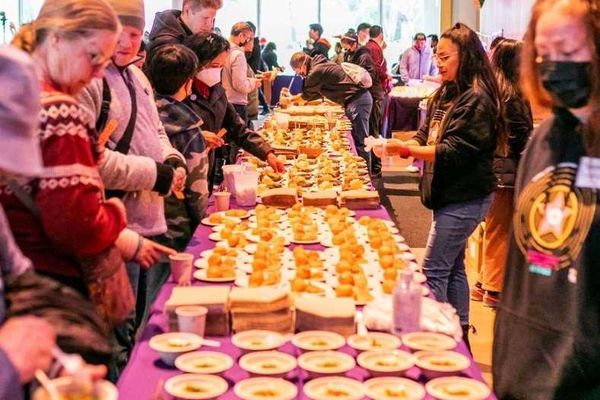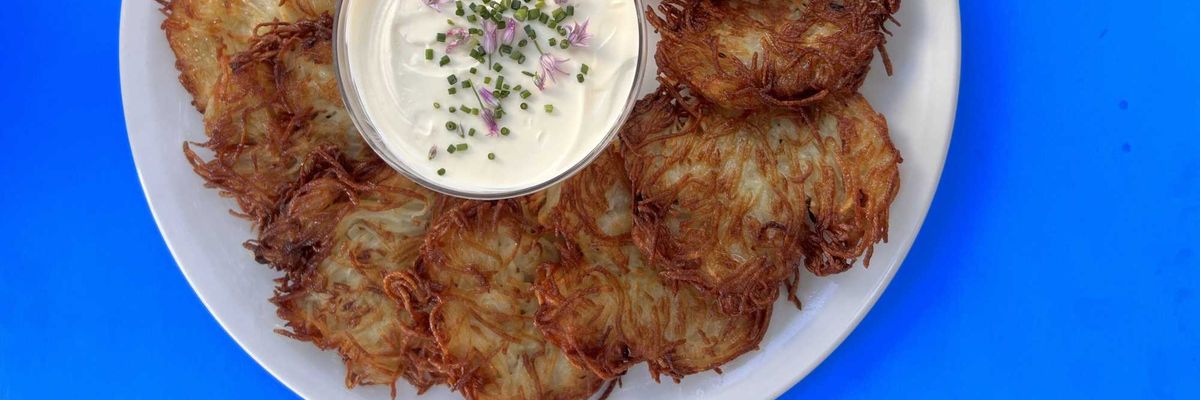I suppose this should begin with something of a disclaimer, which is that I'm neither a hardcore habitué of Indian restaurants nor a connoisseur of Indian cuisine. What I can say, though, is that when I do go out for Indian food, in spite of the fact that it's so uniquely satisfying, the overarching impression is one of déjà vu—that I've seen these dishes and tasted these flavors before. So recently, when a friend mentioned a new place in the city that was doing something quite different with the cuisine, an outing for dinner seemed all but mandatory.
Rooh, which means spirit or soul in Punjabi and Urdu, is a collaboration between Vikram and Anu Bhambri—who together own 14 restaurants in Delhi, Mumbai, Pune and Gurgaon—and Sujan Sarkar, a chef who, after 11 years in London working alongside luminaries like Chris Galvin and André Garrett, returned to India, where his penchant for experimentation and gift for reinventing traditional dishes brought him a degree of notoriety that was cemented in 2016 when the Times of India named him Chef of the Year.
Rooh in San Francisco
Rooh's cocktail menu is organized according to underlying flavors and characteristics.
Rooh in San Francisco
The Banaras Sour -- gin, lime juice, simple syrup, chickpea brine, basil, cucumber, and a hint of Chartreuse
Rooh in San Francisco
Asparagus pepper fry with curried cauliflower and potato mousse, and dosa crisp
Rooh in San Francisco
Malai broccoli with tandoori artichoke and yam, parmesan mousse and pine nuts
Rooh in San Francisco
Cold yogurt dumpling garnished with tamarind gel, cilantro and mint chutney, sev and broken raspberry
Rooh in San Francisco
Pork belly with sweet and sour mango achar, masala cracklings and green onion
Rooh in San Francisco
Sarkar's artistic rendition of pani puri -- a popular Indian street food
Rooh in San Francisco
Alaskan halibut with gunpowder spice, seafood and millet kichdi and cilantro papad
But let's talk about Rooh's cocktails, all devised by Sarkar and arranged according to their underlying characteristics on a menu resembling a pinwheel. Giddily, my friends and I sipped our way through a Mumbai Sharbat, an invigorating blend of blanco tequila, blood orange, lime, masala and a splash of soda; a Banaras Sour, a thirst-quenching mix of gin, lime juice, chickpea brine, basil, cucumber and a hint of Chartreuse, garnished with a pansy; and a Chai Punch—whiskey, grapefruit shrub, Assam tea and lime juice—served cold from a teapot.
With awakened palates and receptive minds, we set into the food, starting with a trio of chutneys—an insistently sweet-hot chili-and-peanut; a fire-suppressing avocado-and-yogurt; and a richly fruity tomatillo-and-green-mango—served with wonderfully fresh naan, some of it stuffed with a yummy, gooey, spicy green pea and goat cheese kulcha. Then asparagus pepper fry, a pleasingly three-dimensional dish with a base of delicately spiced curried cauliflower and potato mousse, perfectly al dente asparagus spears seasoned with podi masala, and topped with crispified dosa, the savory South Indian pancake made from rice and lentils.
Fans of the Hawaiian dish poke, we quickly did away with Sarkar's take: tuna bhel. A mixture of puffed rice, potato, onion, cilantro, spices, green chile and tamarind, bhel is a popular street food in Mumbai, and its complex flavors and textures are a perfect complement to wonderfully fat cubes of exquisitely fresh (and sustainably caught) ahi. The potato tikki was similarly short-lived. Based on aloo tikki—fried potato cakes that are a popular street food in northern India—Rooh's version is served on a dollop of sweet-and-sour yogurt mousse and concealed in a nest of kale and spinach tempura so crispy it's crunchy. Dressed with tamarind chutney gel as well as with a mint and cilantro chutney and little lobes of frozen raspberry, the dish sings with flavor and fun.
For the main, I went with Rooh's Alaskan halibut, perhaps because at the time I was harboring fond memories of Brandon Jew's sizzling take on the fish at Mister Jiu's. Sarkar's approach is very different, and equally compelling: seasoned with gunpowder spice (a blend of roasted lentils, chili powder, sesame seeds, fried garlic, salt, curry leaf powder, black pepper, asafetida, and cumin seeds), grilled on a plancha, and nestled on a mound of kichdi (a succulent concoction of millet and yellow lentils, not unlike dal).
A week has gone by since the dinner described above, and no surprise, I'm keen to explore the other corners of Rooh's menu. Somewhat unexpectedly, though, I find myself wanting to revisit some of the city's less conceptual Indian restaurants, if only to better understand the traditional dishes with which Sarkar plays so adroitly. // Rooh, 333 Brannan St. (SoMa), roohsf.com

























































